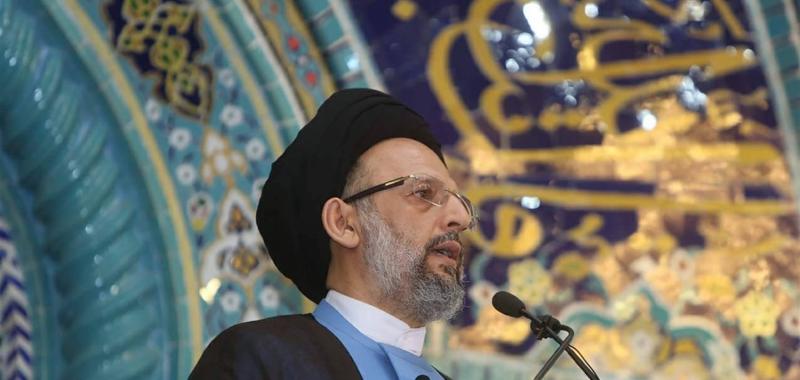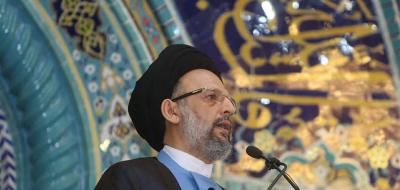Sheikh Ali Fadlallah delivered the Friday sermon from the pulpit of the Imam Al-Hassanain Mosque in Haret Hreik, in the presence of various religious, political, and social figures, along with a crowd of believers. Fadlallah expressed hope that the representatives of the people in the parliament would "be the voice of the people and guardians of their interests," urging the government not to continue its policy of draining the already empty pockets of the Lebanese people. Instead, he called for a focus on recovering the embezzled and smuggled funds from those who have squandered the people's money and deposits, as well as addressing the sources of waste and corruption to ensure proper investment of state funds.
He lamented that all of this is happening while the state's institutions are stagnant, with the presidential vacancy persisting, awaiting the clarity of positions from the parties regarding the dialogue called for by the parliament speaker. He asserted that dialogue remains the best path to addressing this challenge, as it has become clear that none of the parties are capable of decisively choosing this option for their benefit or are willing to concede to others.
Fadlallah noted that the path suggested by the French envoy is not a smooth one for dialogue, and even if dialogue were to happen, it would not substitute for internal discussions, emphasizing that no external solution is viable without internal dialogue. Thus, he reiterated the call for political forces that oppose this dialogue or have not expressed an opinion to seize this available opportunity and respond positively, rather than resorting to tense, provocative rhetoric that leads to the demise of dialogue and exacerbates chaos, leading to further decay and dysfunction within state institutions, culminating in potential security collapse or opening doors to calls for federalism and division.
He added that if anyone harbors concerns about the futility or seriousness of the dialogue, this should not deter them from engaging in it. Instead, it should encourage their participation and the discussion of these concerns during the sessions. He emphasized that the reasons for previous instances of failure to engage in dialogue due to certain stances and circumstances do not imply that those same stances and circumstances exist now.




